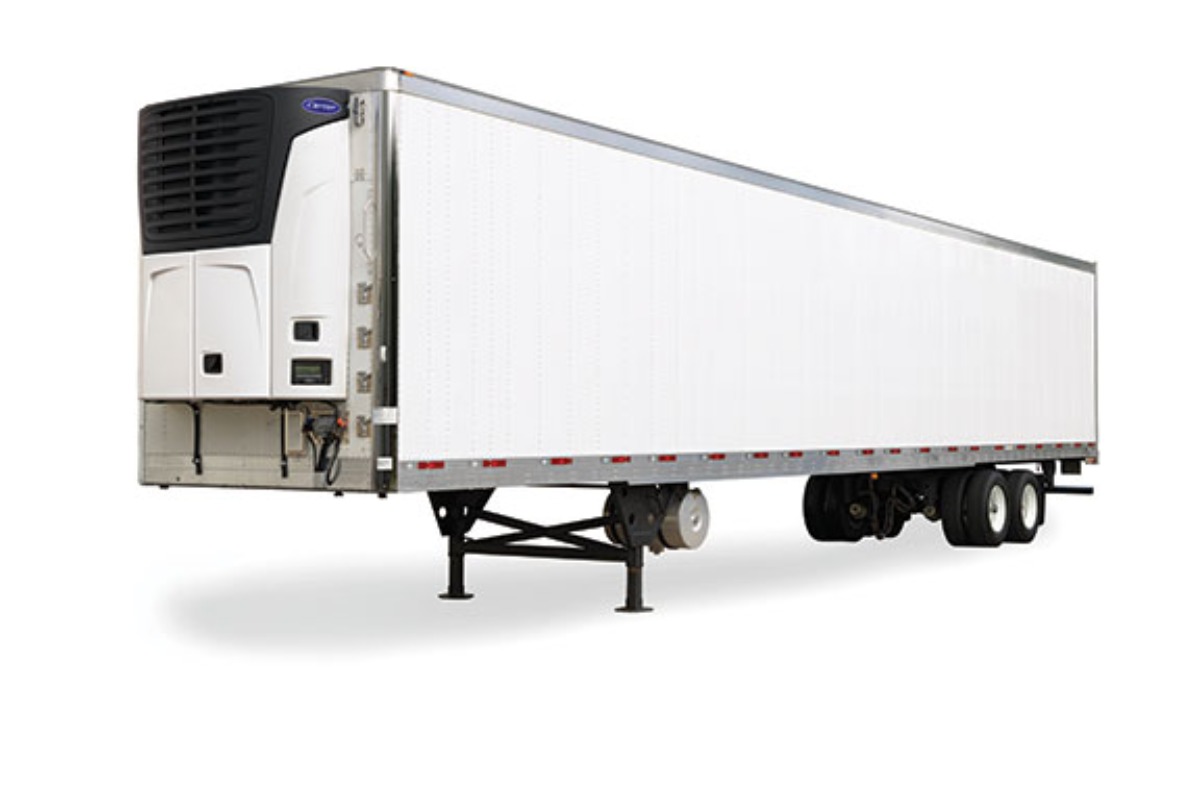
Reefer
These trailers differ from cooling vans, which are just insulated and vented. What makes a reefer trailer different? Reefers include an active cooling system. Thus, you can transport frozen as well as refrigerated freight.
A reefer could also be temperature adjusted to haul heated goods as well. However, this is much less common.
You can find reefers using a couple of different cooling methods. You may see both diesel-powered generators and cryogenic cooling systems. Let’s take a closer look at exactly how trailer cooling works.
How Reefer Units Work
Reefer units operate on a closed system. Removing heat and maintaining a steady temperature is what a refrigerated trailer system is all about. They operate by collecting and pumping heat throughout the system. Now I’ll address the core components in making this work.

Components of Reefer Units and the Cooling Cycle
- The Compressor: There’s a small engine within the reefer unit that drives the compressor. The compressor draws in gaseous refrigerant and, as you’d expect, compresses it. The pressure from this liquefies the gas. This then gives off heat to the body of the compressor and the air itself. From here, the temperature is still fairly warm, and the refrigerant goes through to the condenser.
- The Condenser: The condenser receives the liquid from the compressor. Then a heat exchange process begins. The warmth of the liquid flows to the walls of the tubing, then outside to the attached fins. The fins provide more surface area with which to cool outside air that comes in through the condenser fan. The process is very similar to how a radiator cools an engine.
- The Evaporator: The evaporator is inside the trailer. At this point, the refrigerant has given up most of its heat to the condenser and become a cool liquid. Then it goes into the evaporator through a metering valve. This valve controls the amount of cooling. Inside the evaporator, the now cool liquid refrigerant expands, turning back into a gas. It absorbs a great deal of heat from the surrounding finned coils during this process. The air from inside the trailer then blows over the evaporator. The air then goes back into the compressor, and the cycle begins all over again.
What Type of Freight Ships in Refrigerated Trailers?
Refrigerated trailers store temperature-sensitive cargo. Reefers are best for certain types of freight, including the following:
- Bulk liquids
- Flowers
- Hazardous materials
- Chewing gums
- Paint
- Pharmaceuticals
